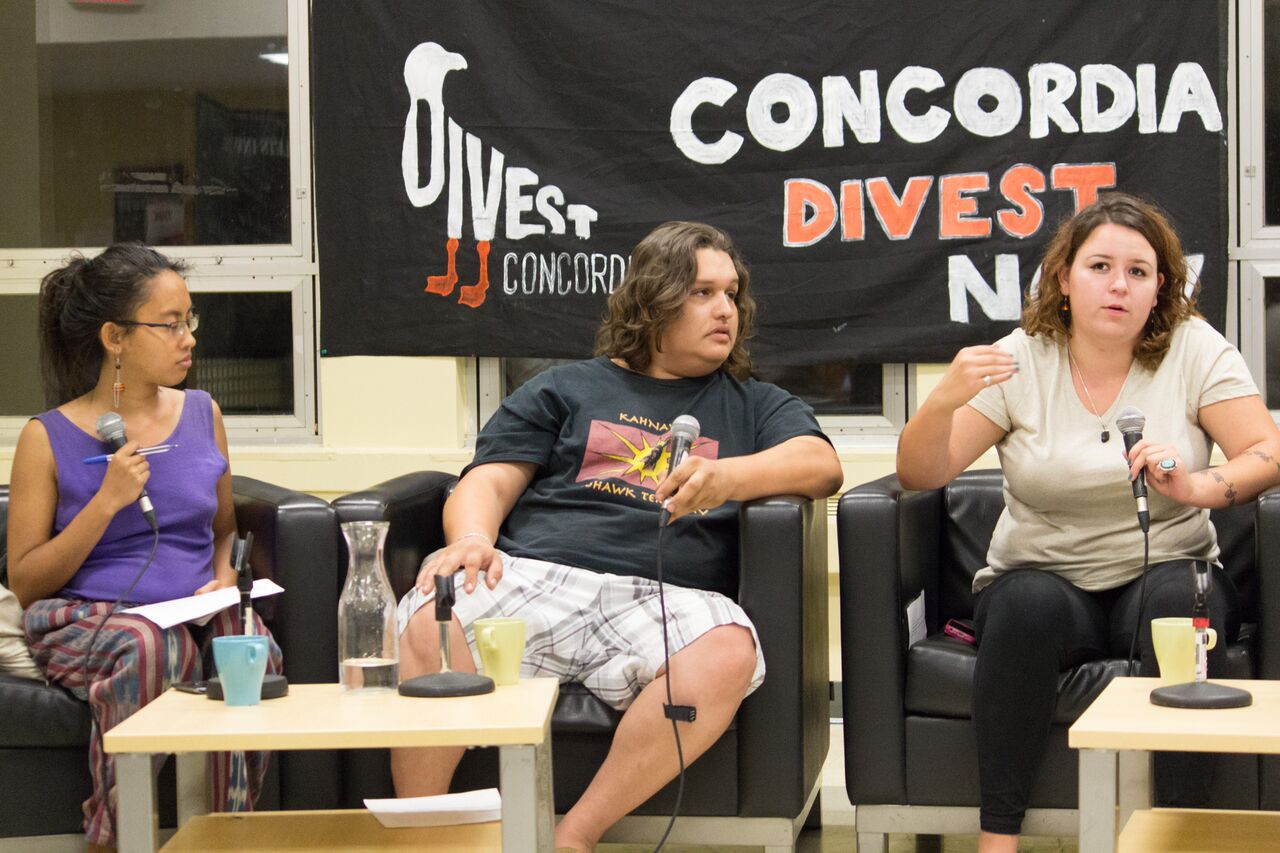First Nations communities are rallying the public to join them in defending the land from the North Dakota Pipeline
On Sept. 13, Divest Concordia and the Concordia Student Union (CSU) invited three Indigenous activists to discuss the effects of climate change and why they oppose oil companies, which they say are destroying their communities.
The speakers included Vanessa Gray, a youth activist from the Aamjiwnaang First Nation near Sarnia, Ont., and Kiona Akohserà:ke Deer and Onroniateka Diabo, who are both from the Kahnawake Mohawk Territory. Akohserà:ke Deer and Diabo recently returned from Standing Rock, where protests over the North Dakota Pipeline are taking place.
The discussion began as Gray outlined the challenges facing the Aamjiwnaang First Nation community. She said the area is surrounded by over 60 high-emitting facilities which make up over 40 per cent of Canada’s petrochemical industry. Even then, it is “impossibly hard,” she said, to mobilize the 800 residents against climate change.
“Climate change is not the subject people want to talk about in Sarnia,” she said. “In a place where education is shared—let’s take Concordia for example—talking about climate change might be easier than [in] a place where everyone’s livelihood is based off [gas companies like] Shell or Suncor.”
Companies that are not being held accountable for negligence are damaging the environment, said Gray, and the population is also affected by it.
According to Gray, thirty per cent of women in Aamjiwnaang have experienced miscarriages or stillbirths within their lifetime. “This is just based on where they live—not based on diet or what the mother is doing,” she said.
In an ongoing court case, Gray said she is facing heavy charges for her role in the December shutdown of Line 9—a pipeline with the capacity to carry 300,000 barrels of oil a day between Sarnia, Ont. and Montreal. This year, the pipeline turned 40 years old.
“We cannot survive a pipeline rupture like Line 9 because there’s no way of cleaning it up. This is why I’m facing life in prison—because there is no other choice at this point,” Gray said. “It’s just one of the many issues that connects us all. It connects me to you, because this pipeline starts in my backyard and ends here [in Montreal].”
After Gray, Akohserà:ke Deer shared what changes she recently noticed taking place in her Kahnawake community, and what she had learned since returning from Standing Rock.
She said she had been approached by young people outside the community who were looking for a way to work together. A lot of the elders are still reluctant to welcome those not of Indigenous descent, Akohserà:ke Deer said, however claiming she believes her generation is more open.
She further encouraged people to get the word out via social media, about the social injustices facing Indigenous communities not just locally, but globally as well.
For anyone looking to get directly involved, Akohserà:ke Deer said: “Try to educate yourselves a little bit before you walk into somebody else’s community. There’s different protocols everywhere. In Kahnawake, how we mobilize is completely different from how they mobilize now in Standing Rock.”




